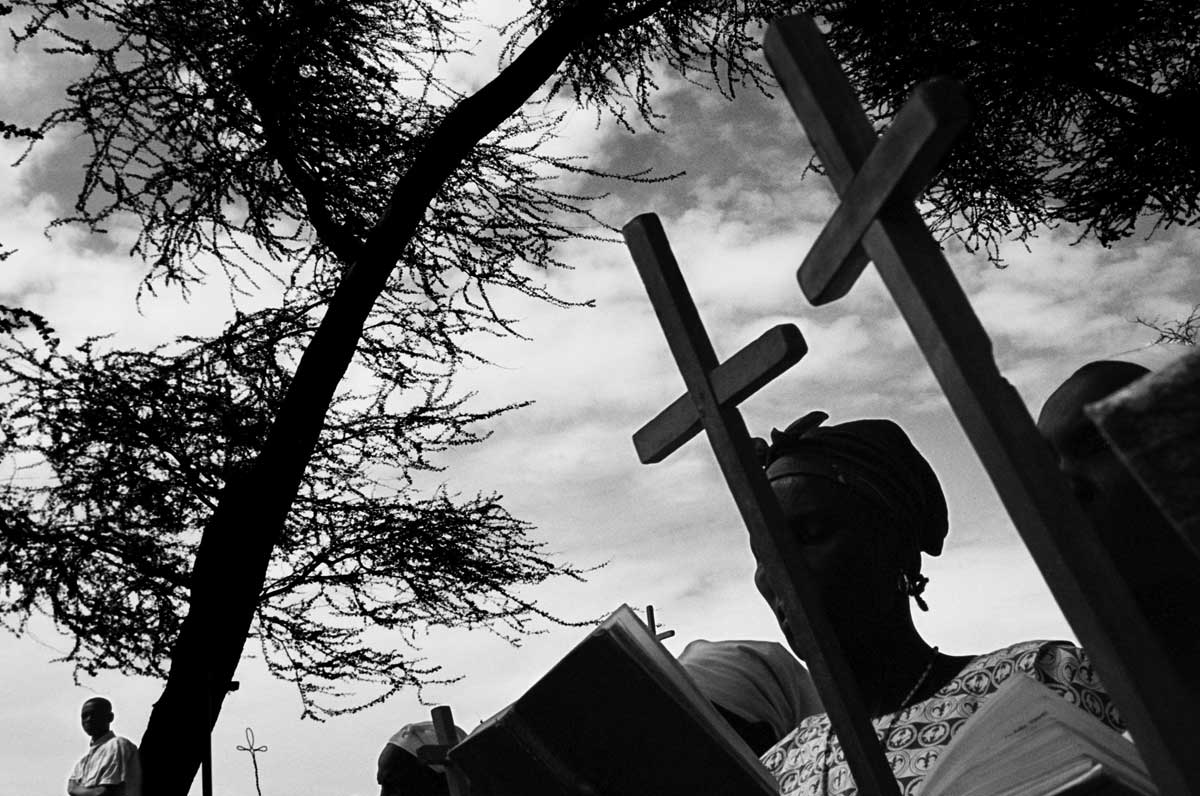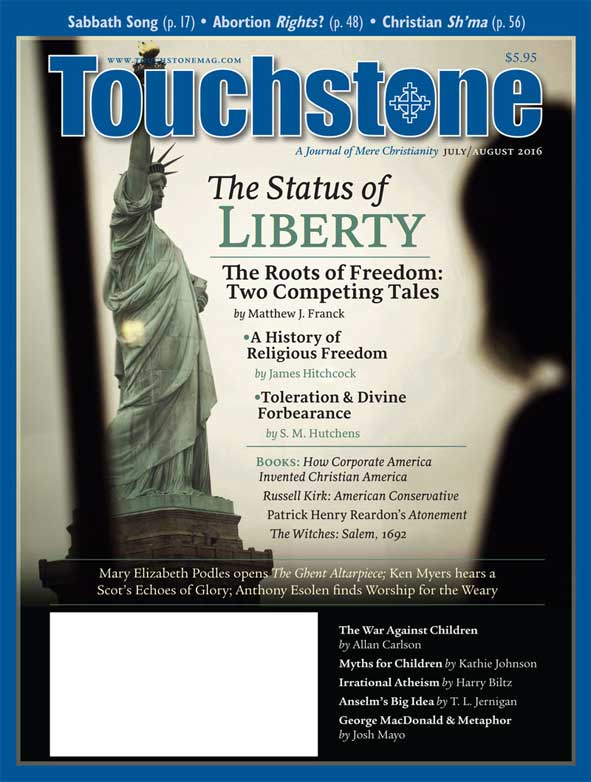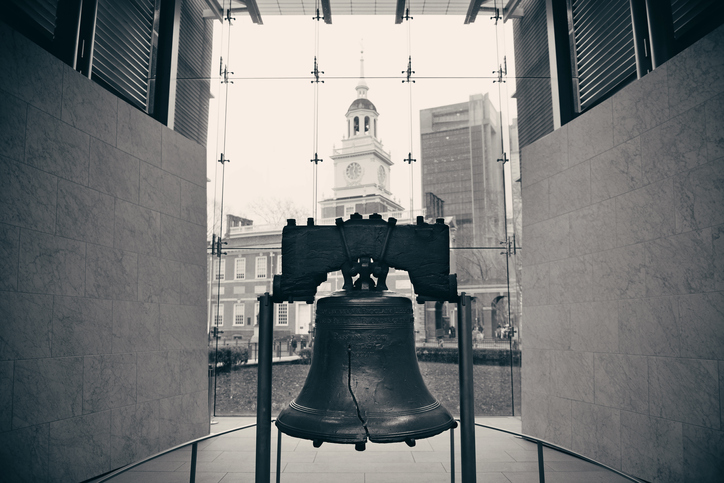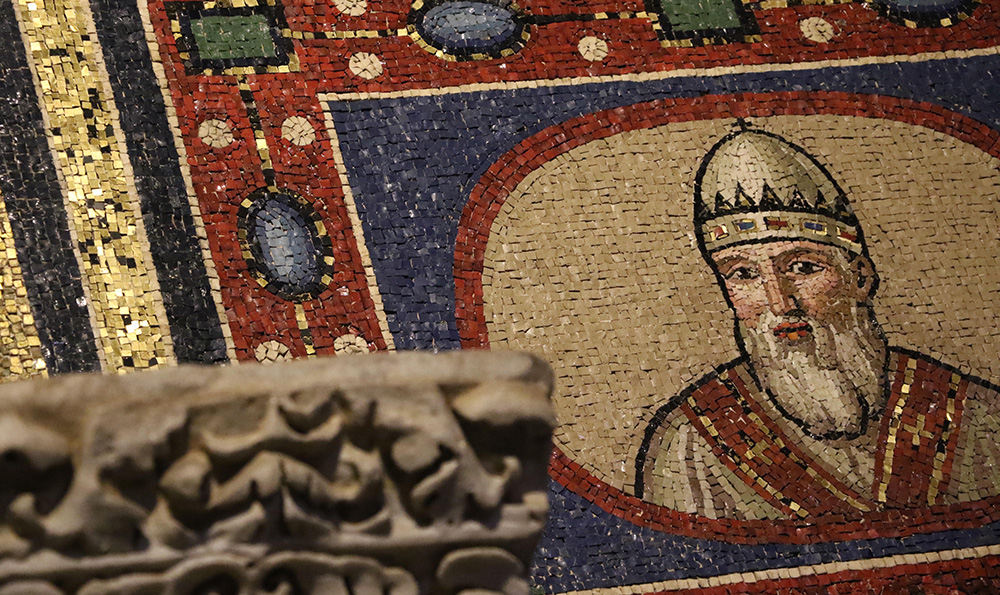Forum: Response
Toleration & Divine Forbearance
Do you think I have come to give peace on earth? No, I tell you, but rather division.
Do you not know that God's kindness is meant to lead you to repentance?
In regard to Matthew Franck's two origin stories, I find it surprising that on so consequential a matter as the toleration of false teaching (for that is what we are discussing with regard to religious liberty), the apostolic deposit has given so little guidance that the Church has come to learn its own true mind on the subject, "not without pain and struggle," through its experiences in contemplation on the meaning of the imago Dei; through patristic allusion to the necessity that faith not be coerced; through the biblical record wherein our fathers, though chained in prisons dark, were still in heart and conscience free; and through heroes who laid the foundation for our religious liberty by resisting compulsion.
The Church, if we are to acknowledge Locke's litany of abuse in A letter Concerning Toleration, not much relieved by Prof. Hitchcock's historical observations, has had a particularly difficult time both identifying and following what some now take for a truth for which it is ultimately responsible—even though it would appear that its right belief in this matter has been finally clarified only by political philosophy in the wake of the Enlightenment. In said clarification, the Ground and Pillar of Truth has, as Locke's Letter asserts, been seized up and taught that, against the errors of its unquiet past, the toleration that leads to religious freedom for all but a few intolerables is its true belief.
If the teaching of the Church on this matter is not so much a product of scriptural or apostolic teaching as it is an evolution of doctrine, that suggests there is more than a little truth in the first origin story, which Franck rejects as a myth: that what was not clear in the Church, and toward which it, lacking dispositive teaching, had to struggle, was clear to modern thinkers who therefore found themselves in a position to say that toleration was its true doctrine on the treatment of errors in religion, essentially because Jesus taught, like the Mohammed of popular myth, a religion of peace.
Apparent Similarity
The Scriptures, however, know nothing of the liberal virtue of religious toleration, nor of freedom of religion as a divinely instituted right. Instead, they speak of the forbearance and patience of God, which we in penitent acknowledgement of our own sins must also give to our neighbors, in fear that as hypocrites we might be condemned for refusing to grant others what he in his goodness has granted to us.
Here is my central assertion in this response: Any acceptable concept of "toleration" among Christians is to be placed securely in the context of a teleology in which the sufferance of error, when not responded to by the repentance and amendment for which it is granted, is met by condemnation and judgment. It is this belief, not development of a doctrine of religious toleration from a root in divine revelation, to which the tumultuous and generally illiberal history of the churches bears witness. The time given in which no action is taken in judgment must be regarded as a limited period of grace, and is never a "right."
Toleration as a political right has, unlike the patience and forbearance of God, which he in turn requires of his people, a fixed quality. It is a virtue requiring authority with the power to secure it, but it needs no God to originate it, and it leads toward no execution of judgment. Having no end in judgment, there is no requirement for movement toward amelioration of the offenses to be tolerated, only the indefinite extension of said toleration as a right.

S. M. Hutchens is a senior editor and longtime writer for Touchstone.
subscription options
Order
Print/Online Subscription

Get six issues (one year) of Touchstone PLUS full online access including pdf downloads for only $39.95. That's only $3.34 per month!
Order
Online Only
Subscription

Get a one-year full-access subscription to the Touchstone online archives for only $19.95. That's only $1.66 per month!
bulk subscriptions
Order Touchstone subscriptions in bulk and save $10 per sub! Each subscription includes 6 issues of Touchstone plus full online access to touchstonemag.com—including archives, videos, and pdf downloads of recent issues for only $29.95 each! Great for churches or study groups.
Transactions will be processed on a secure server.
more on Religious Liberty from the online archives

27.3—May/June 2014
Religious Freedom & Why It Matters
Working in the Spirit of John Leland by Robert P. George

24.6—Nov/Dec 2011
Liberty, Conscience & Autonomy
How the Culture War of the Roaring Twenties Set the Stage for Today’s Catholic & Evangelical Alliance by Barry Hankins
more from the online archives
calling all readers
Please Donate
"There are magazines worth reading but few worth saving . . . Touchstone is just such a magazine."
—Alice von Hildebrand
"Here we do not concede one square millimeter of territory to falsehood, folly, contemporary sentimentality, or fashion. We speak the truth, and let God be our judge. . . . Touchstone is the one committedly Christian conservative journal."
—Anthony Esolen, Touchstone senior editor











